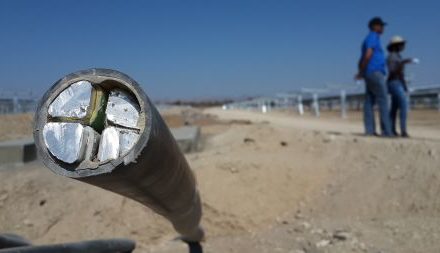
Lower rates despite spending fears
The Bank of Namibia this week took a bold move lowering the repo rate by 50 basis points to a historic low of 5.5% despite concerns of growth in instalment credit.
At 5.5%, the repo rate is at its lowest level since independence in 1990 while the prime lending rate is now at its lowest level since May 1974 when interest rates stood at 9%.
Announcing the bank’s decision on Wednesday, Governor Ipumbu Shiimi said the medium term outlook continues to be overshadowed by heightened uncertainties particularly in the export market.
He said: “Recent and prospective developments of the Namibian economy remain strongly connected to developments in the world economy, which is characterised by increased uncertainties.
A slowdown of external demand is likely to put pressure on export earnings and overall GDP growth going forward, notwithstanding some positive developments observed during the first half of this year.”
Shiimi noted that a measure of monetary easing is necessary to support the ailing sectors of the economy and further shore up the subdued growth outlook.
In the meantime, the central bank said it was concerned about the rapid and sustained expansion of consumer loans including instalment credit and overdraft facilities as it may crowd out funding for more productive activities and put unwarranted pressure on the country’s international reserves.
Governor Shiimi reiterated the bank’s earlier threat that it will be forced to take corrective measures if the situation persists. Growth in money supply increased at the end of June to an annualised 14.8% compared to 12.7% in May. Commensurately, growth in credit to the private sector remains strong, although it moderated to 12.2% in July from 12.8% in June.
Shiimi said:“There are various tools that one can look at to try and tame too much credit going into unproductive activities. We don’t have a single position yet; we are still thinking about it. If the situation gets better we may not do anything, but if [consumers] continue to borrow too much to finance private consumption we will be forced to act.”
The governor defended the bank’s decision to reduce interest rates while, seemingly in contradiction, it remains concerned about increased consumer spending.
“We are only worried about one part, credit going to finance instalment credit; that is our worry. Now, do you direct interest rates to only that one component or can you actually find a better tool which is better targeted to that part? So that has been our debate.”
“We felt it is not proper to use interest rates to fight just one component, because you may end up hurting the whole economy at the expense of one so it is better to direct your intervention directly to that specific issue.”
Governor Shiimi could, however, not reveal what measures the bank will implement to tame high consumption spending.
“As I said we are still trying to figure out what is the best way of doing that but we think overall the economy needs a boost despite the fact that instalment credit is increasing fast.”












































